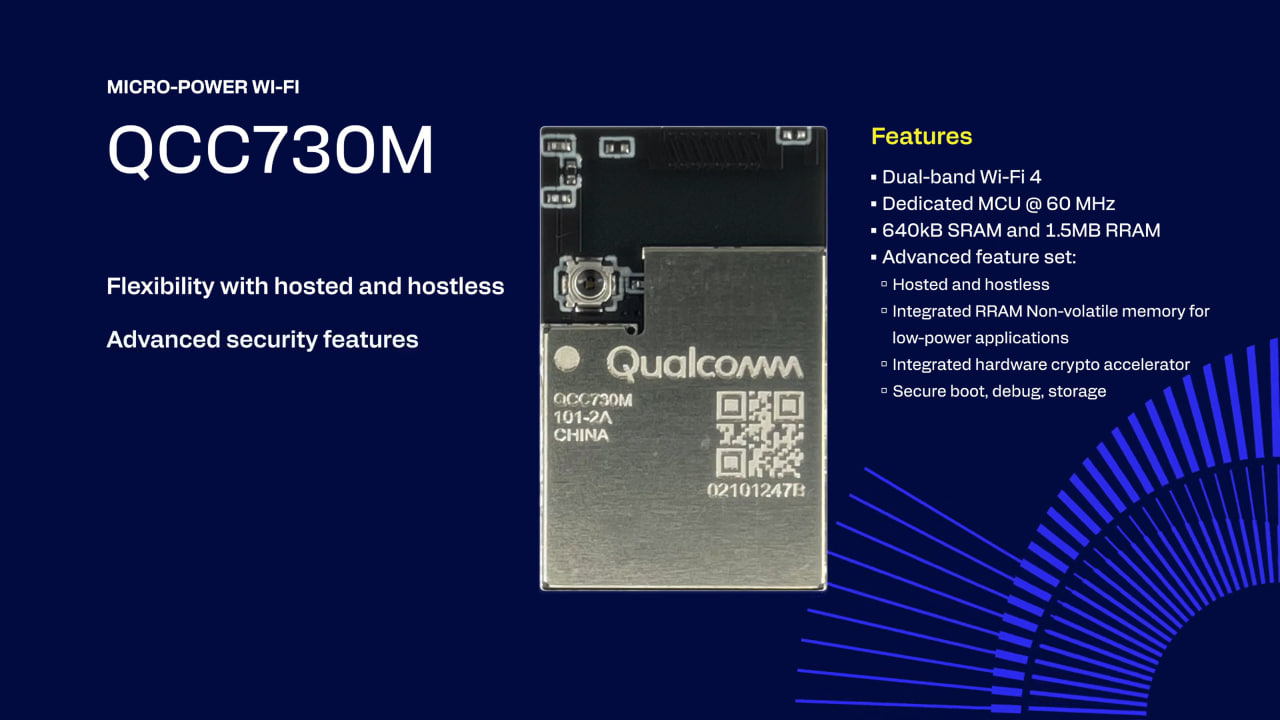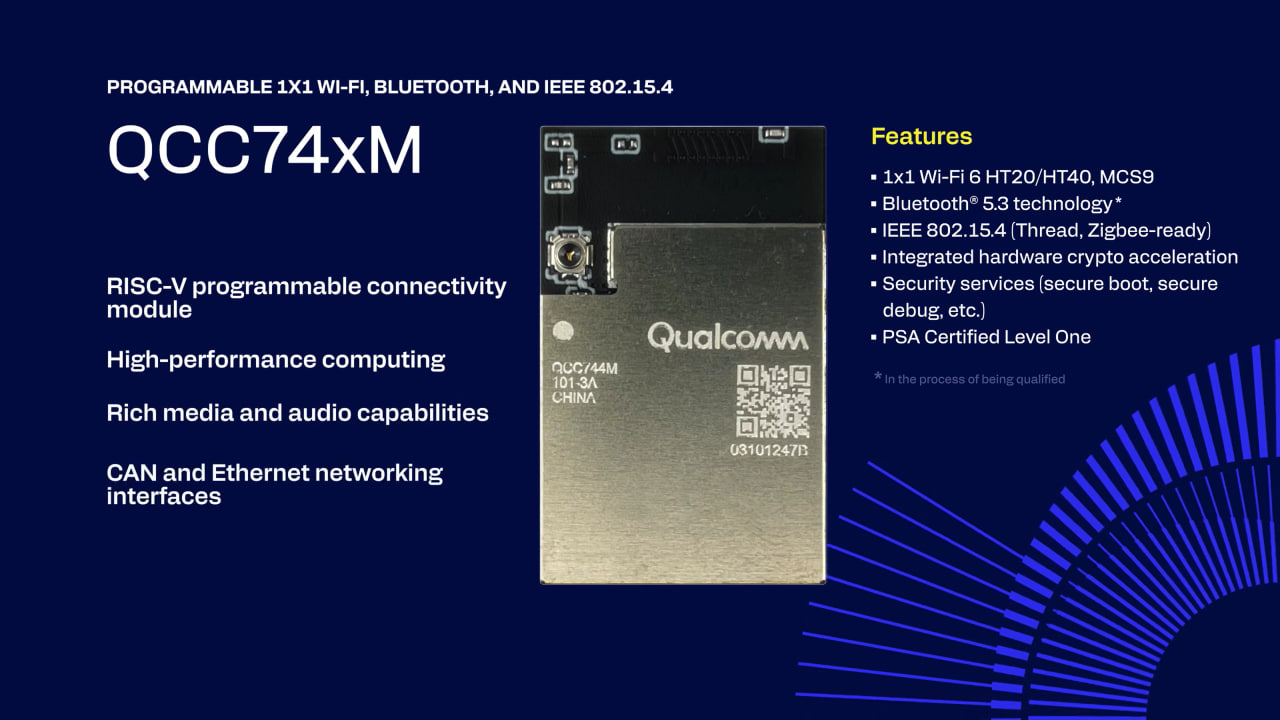Qualcomm has announced two new connectivity modules, which are designed to power the next generation of Internet of Things (IoT) devices. Specifically, the QCC730M and QCC74xM modules are poised to revolutionise smart homes, smart appliances, and industrial IoT applications. Furthermore, these advancements signal a significant leap forward in connectivity solutions, ensuring seamless integration and enhanced functionality across various IoT ecosystems.
QCC730M: Power-Efficient Wi-Fi Connectivity
The QCC730M, a dual-band Wi-Fi 4 module, is optimised for low power consumption. In addition, it features an integrated Arm Cortex-M4F microcontroller, as well as ample SRAM and RRAM for efficient operation. The module also incorporates advanced security features like Secure Boot and cryptographic acceleration.
QCC74xM: A RISC-V Breakthrough
The QCC74xM marks a significant milestone for Qualcomm, as it represents the company’s first programmable connectivity module based on the RISC-V architecture. Moreover, this versatile module offers a range of connectivity options, including Wi-Fi 6, Bluetooth 5.3, and Thread/Zigbee.
A key feature of the QCC74xM is its ability to operate in hostless mode, which means it can function independently without the need for an external host processor. As a result, this flexibility makes it ideal for a wide range of IoT applications, ranging from simple sensors to complex devices.
Key Features of the QCC74xM:
- RISC-V Core: Powerful and energy-efficient processing capabilities.
- Multi-Protocol Connectivity: Supports Wi-Fi 6, Bluetooth 5.3, and Thread/Zigbee.
- Hostless Mode: Independent operation without external host processors.
- Advanced Security: Robust security features to protect sensitive data.
- Flexible I/O: Customisable I/O options for diverse applications.
Qualcomm is currently sampling both the QCC730M and QCC74xM modules to select customers. Mass production and general availability are expected in the first half of 2025.





